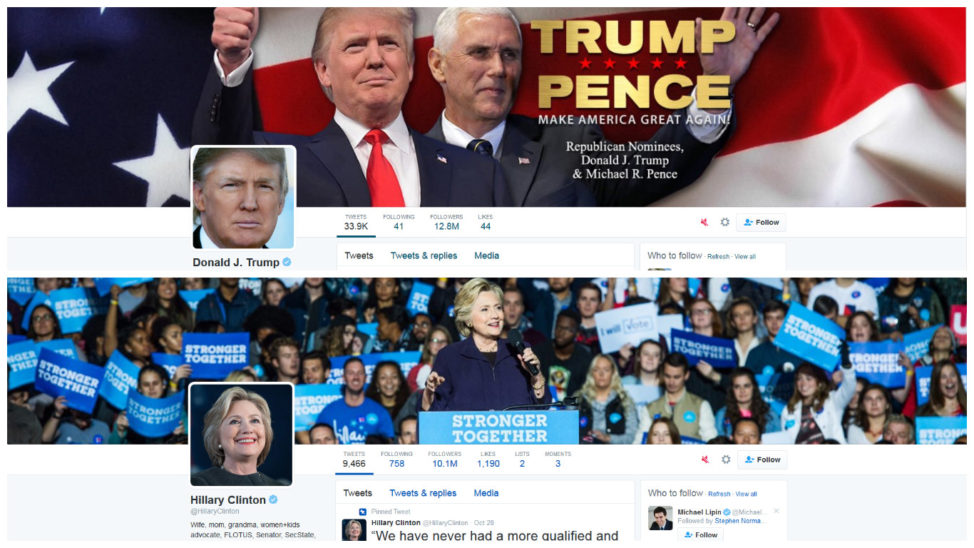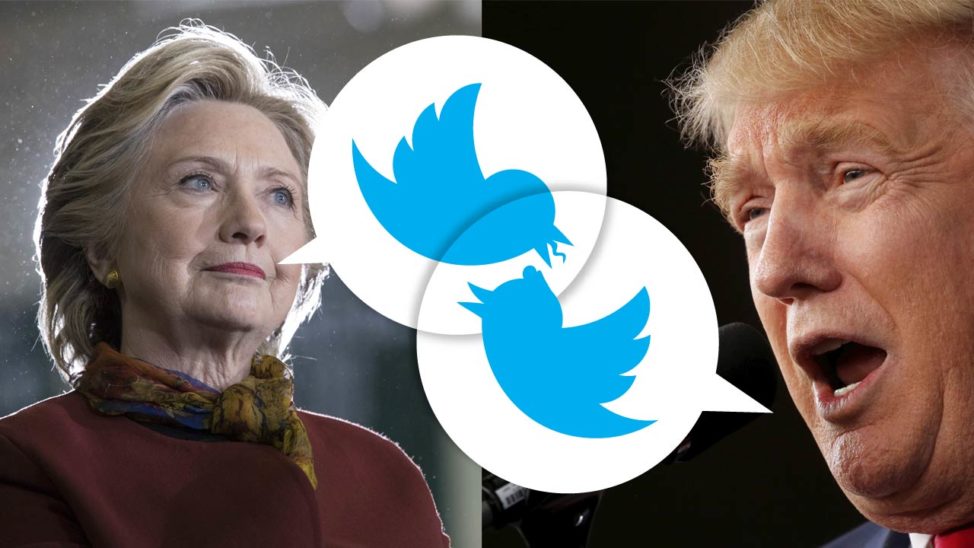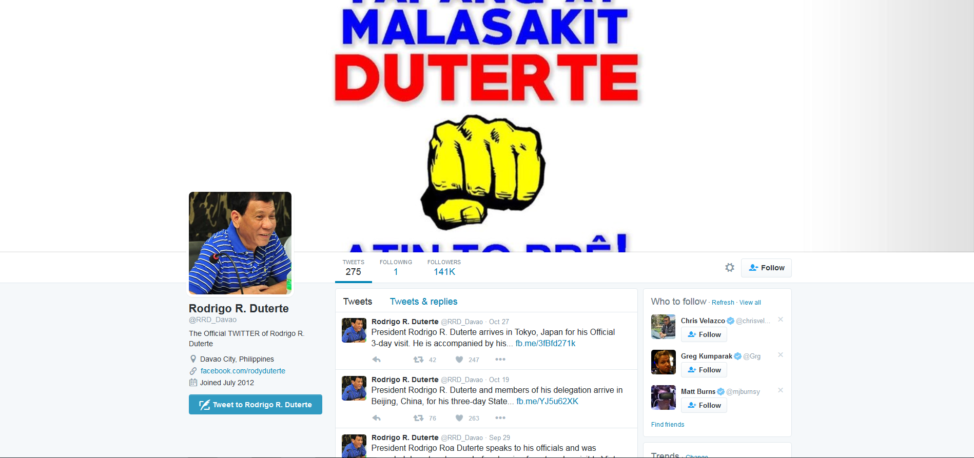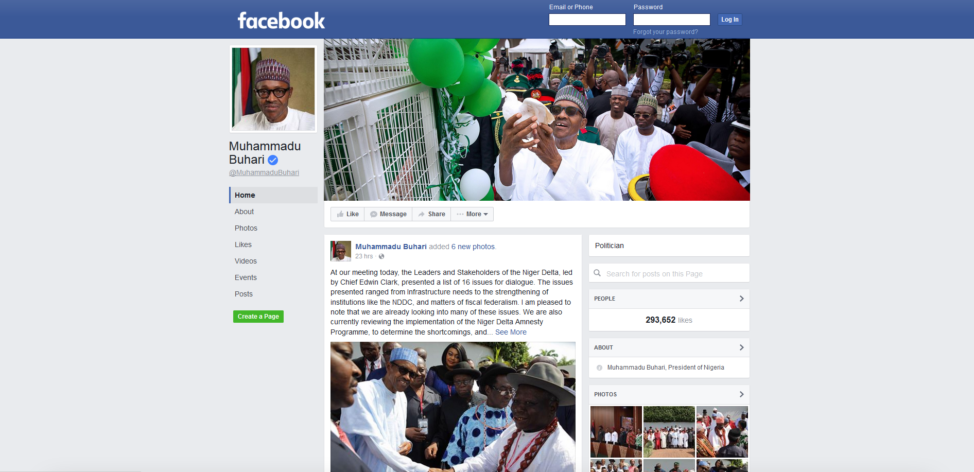The level of social media engagement in this year’s U.S. presidential election has been unprecedented. And experts say it will serve as a template for influencing voters in future election campaigns in the U.S. and beyond.
Democratic presidential candidates Hillary Clinton and Florida Governor Jeb Bush, a Republican who dropped out of the race, were the first candidates to announce their 2016 presidential bids on Snapchat. And Bernie Sanders’ supporters reached out to younger demographics on social dating service Tinder before the Independent Senator withdrew from the race.
“This is the first time where pretty much everybody is on social media,” said Frank Speiser, co-founder of SocialFlow, a social media optimization platform. “It’s a global conversation at this point where eight years ago it really wasn’t. Now everybody uses it and in some cases as a primary method of communication.”
“It’s a huge part of this election cycle, maybe even more so than the previous cycles,” said professor Christo Wilson of Northeastern University, Boston. “It would be folly to ignore something as big as Twitter or Facebook or Snapchat.”
Social media has the ability to “morph” based on the required content, said Speiser, allowing campaigners to get people to act on their behalf or to appeal directly to new voters.
“Hillary Clinton can reach younger voters that are liberally-inclined through social media,” he added. “And Donald Trump’s strategy seems to be reaching people who have not voted or don’t show up in polling from previous election cycles and convincing them to come out to the poll. And there, regardless of age, they seem to be active on social media. So all of the upside in this election is basically only reachable through the social channels.”

Screenshots from the Twitter pages of Republican presidential candidate Donald Trump (top) and Democratic presidential candidate Hillary Clinton (bottom). (Twitter)
Both Democratic and Republican presidential candidates Hillary Clinton and Donald Trump have run incredibly savvy social media campaigns, using every available outlet to push news, divert attention and activate voters, if not sway them.
“This basically is a template now for every major election moving forward where people realize that you win or lose based on social,” said Speiser. “You start news cycles on social now. You don’t wait … and… you can divert an existing news cycle by switching the focus on social … If you can figure that out and measure that in the swing states, I think you will be able to zero in on who has the edge.”
But since neither candidate has been able to garner additional support through social media in the past month, according to SocialFlow, the focus now is “to convey a message which would discourage the opponent’s voters to show up,” said Speiser.
In that way, social media has become the “primary activator of whether or not people will vote,” with services like Facebook busily pushing users to vote and reporting some success toward increasing turnout.
Politicians in other countries are also leveraging the power of social media to the hilt. The Philippines live-streamed debates ahead of its May national elections, and the immediacy and participation that are particular to social media forced some political campaigns to alter their strategies.
Britain used social media – and its bots – to influence voters in the Brexit referendum to determine the future of the country’s EU membership. And as politicians turned to Facebook, Twitter and LinkIn to sway voters during last year’s Nigerian elections, activists looked to social media for news about the elections. When voting began, they monitored the polls for early results and posted them online, accurately reflecting voter trends and perhaps setting a precedent for social media as a political watchdog.
But despite the increasing prominence of social media in election campaigns, Wilson believes there still aren’t enough cord-cutters right now to move entire political campaigns away from TV ads to social platforms. And the demographics are different.
“Older people tend to favor TV over social media, which just means you have to tailor your messages more carefully,” he added. “The advertising you see on TV … is … extremely expensive and not particularly precise, whereas social media or online advertising in general can be creepily specific” to the demographic it seeks to influence.
Eventually, social media could displace TV ads, typically viewed by those who have already made up their minds and “aren’t going to sway,” said Speiser. They also have established voting records.
“It’s pretty clear that the effect in terms of outreach and voter activation is primarily a social media case,” he said. “I don’t think TV ads are that important to election cycles. … And you don’t know how they did until maybe it is too late.”
It takes time to focus-group a TV ad and test it to see how well it plays. But it takes minutes to deliver the same message in real time on social media. “And the messages that play well that garner support and build cohesive coalitions, you run with them,” he said.
Ironically, Speiser noted that social media, created to connect people and perhaps help them understand each other better, has been used to the contrary throughout the U.S. election campaign. The Philippines had a similar problem.
“People aren’t using the medium to understand the other arguments and sort of dissect and debate,” he observed. “… The Clinton supporters are not becoming more like the Trump supporters and the Trump supporters are not becoming more like the Clinton supporters … They’re just getting more and more entrenched.”
“There’s nothing that says we can’t have civil discourse – a meaningful kind of guided discussion of a policy and prescriptive statements,” added Wilson. “It’s just that our current candidates and leadership don’t seem to be leveraging the [social media] platforms in this way. We kind of have a race to the bottom, unfortunately.”




One response to “US Social Media Campaigns Are Playbook for Future Elections”
What choice American people shall make for the next America is just what is more than both campaigns.